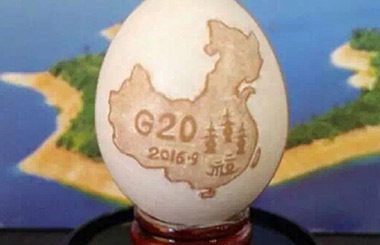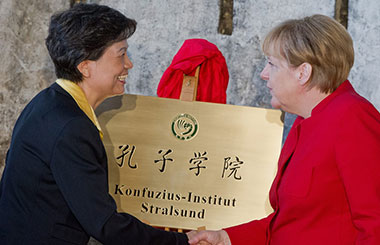Italy-China movie cooperation dominates talks among professionals in Venice
( Xinhua ) Updated: 2016-09-02 10:29:02
 |
|
Actress Jing Ke attends the red carpet event for the movie "The Light Between Oceans" at the 73rd Venice Film Festival in Venice, Italy September 1, 2016. [Photo/Agencies] |
"The explosive growth of the Chinese movie industry, and the high quality of their theaters, prove that we cannot address the future of cinema without putting China at the center of the picture," ANICA secretary general Stefano Balassone stressed at the forum.
Current status and future chances of filmmaking collaboration between the two countries were widely addressed at special event "Focus on China" promoted by Italy's National Association of Cinematographic Audiovisual Multimedia Industries (ANICA).
High-level professionals and top officials from both sides took part in the forum, which ANICA organized with the support of Xinhuanet, the Italian Culture Ministry, and ICE-Italian Trade Agency (ITA) among others.
Several producers and film industry professionals alternated in debates at the long-day forum, exploring the best ways to strengthen the Chinese-Italian relation and improve co-production in both quality and quantity.
"The Italian cinema has great potential in China," president of China Film Co-Production Corporation Miao Xiaotian told the audience.
"Yet, the Chinese market is huge, and many foreign movies enter it every year. The best way (for Italian companies and filmmakers) to face such high competition is to increase co-productions," he explained.
China would also benefit much from working more intensely with foreign partners, according to Miao and other Chinese experts.
With an average production of some 600 movies per year, the country's film industry would need the contribution of countries with a long cinema tradition, such as Italy, to increase the quality of its works.
"Chinese movie production companies need to increase cooperation with foreign partners, and to bring more technologies, professional figures, and know-how from all over the world to China," Miao said.
Italy was also eager to expand the interaction with Chinese filmmakers and production companies, officials at the forum stressed.
Tangible proof of such a will was the recent setting up of a permanent ANICA audiovisual office in Beijing, with the support of ICE-Italian Trade Agency.
"The new Beijing office aims at helping Italian producers and filmmakers enter the Chinese market, but also at guiding and assisting the Chinese counterparts who are interested in producing or filming in Italy," Roberto Stabile, head of ANICA International Department and responsible for ITA Audiovisual, told Xinhua on the sidelines of the forum.
Soon after such initiative took place in early July, Italian Minister of Culture Dario Franceschini paid a visit to China. He returned with a clear perception of "large opportunities of growth for Chinese and Italian cinema industries through co-production," as he said during the forum.
"China is facing a huge growth in the number of movie theatres and young audience, the exact opposite situation compared to Italy," the minister told Xinhua.
"As such, they want to increase and diversify the cultural offer, and their industry is paying a keen attention to Italy and Italian co-productions in both cinema and TV fictions," Franceschini added. "Co-production also provides the chance to bring more Italian cinema to China, but according to the interests and needs of their audience."
Related:
|
|
|
|
|
|
|
|






















 Raymond Zhou:
Raymond Zhou: Pauline D Loh:
Pauline D Loh: Hot Pot
Hot Pot Eco China
Eco China China Dream
China Dream China Face
China Face






